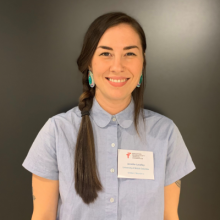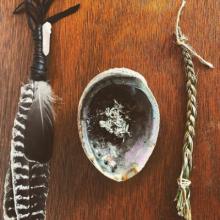Jennifer Lavalley
Why did you decide to pursue a graduate degree?
I have worked and supported Indigenous people who use drugs (IPWUD) through front-line work for over ten years on Turtle Island (Canada). During this time, I witnessed the disparities and injustices many IPWUD faced, not only within our healthcare systems, but also within our own Indigenous communities. Once I started to work within a research context at the British Columbia Center on Substance Use, I wanted to do research that would centre Indigenous-based knowledge to improve the disparities in health among IPWUD.
Why did you decide to study at UBC?
I decided to study at the University of British Columbia for a number of reasons. Not only is it among the most prestigious research institutes on Turtle Island (Canada), it is home to some of the world's leading Indigenous researchers.
What is it specifically, that your program offers, that attracted you?
The Interdisciplinary Studies program at UBC provides the interdisciplinary, social justice-orientated, and intellectually challenging space I am seeking to conduct my research. Interdisciplinary approaches in research compliment Indigenous methodologies, therefore the program allows me to cultivate my skills in community-based qualitative methods and as an Indigenous scholar, directly supporting my long-term career goals to engage in community-based Indigenous health research.
What was the best surprise about UBC or life in Vancouver?
Being able to hike year-round and beach hotdog stands!
What do you see as your biggest challenge(s) in your future career?
As an Indigenous researcher, one of the biggest challenges is trying to bring Indigenous knowledge models into the academy and its traditional dominant knowledge systems.
What aspects of your life or career before now have best prepared you for your UBC graduate program?
My many years of front-line care work with people who use drugs (PWUD) and my research experience at the BCCSU.
What do you like to do for fun or relaxation?
Anything outside, baking, and knitting.
What advice do you have for new graduate students?
Don't be scared to unsettle the traditional/conventional ways of doing research. Be creative. Take risks.

